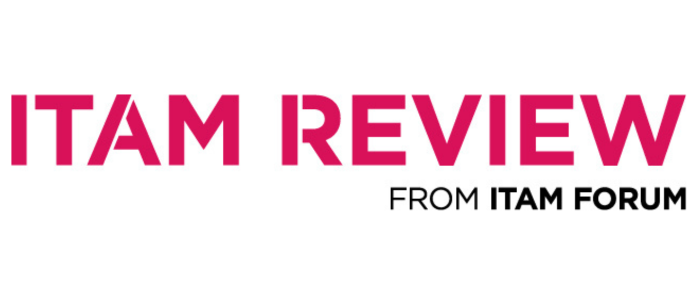Europeans paying 20%+ “cloud tax” according to CISPE report
A new report by CISPE has sought to quantify the additional cost or “tax” of running enterprise software outside of the vendor’s own cloud infrastructure. Professor Frédéric Jenny, the author of the report, cites a premium of at least 20% which can be attributed to the intentionally unfair licensing practices of software vendors. He equates this extra cost as an additional ‘tax’ of billions of Euros every year, just for enterprises and the public sector to run software they already own in the cloud infrastructure of their choice.
Download the report: “Unfair Software Licensing Practices: A quantification of the cost for cloud customers”
Quantifying the “cloud tax”
CISPE stands for “Cloud Infrastructure Services Providers in Europe,” a representative body of the European cloud industry. Among the CISPE’s many initiatives is the promotion of its “Principles of Fair Software Licensing in the Cloud,” along similar lines to the ITAM Review’s earlier Campaign for Clear Licensing. Based on conversations with large software users from across Europe, and detailed analysis of price discrimination, Professor Jenny’s research suggests significant unfair, additional costs are being levied on customers who choose to license software to run on cloud infrastructure provided by independent service providers.
Microsoft under fire

While the report cites most of the tier 1 software vendors, Microsoft makes up the lion’s share of Professor Kelly’s analysis, and by some considerable margin too. The Redmond juggernaut is mentioned no less than 224 times in the report. By contrast, poor Oracle barely gets a look in, with only 13 mentions by Kelly. Likewise SAP is only mentioned 29 times, IBM 3 times etc. You get the picture.
“…specific behaviours of certain legacy software providers — in particular Microsoft – have caused significant economic harm to cloud customers. Therefore, regulators need to take urgent action to address these behaviours at scale and provide systemic remedies at the industry level.”
Microsoft SQL example
Jenny compared the cost to license Microsoft’s SQL Server in an independent cloud with the cost of the same software running on Microsoft Azure cloud. He found the additional charges levied on those choosing a non-Microsoft cloud sucked an additional €1,010,394,489 out of the European economy in 2022. The same model applied to Microsoft 365, where Microsoft surcharges for use on non-Microsoft clouds added a further €560,000,000 per year. This equates to a 28% premium, or tax, on the software licence, just for the pleasure of using it on a third-party cloud. These costs are driven by changes to BYOL terms for just two products, and just in the private sector.
“Microsoft’s BYOL policy change in 2019, which ended users’ ability to deploy on-premise Office 365 Licences on third-party infrastructure, may have resulted in first year licence repurchase costs equivalent to €560m for the European market. An additional surcharge of €1bn, relating to licensing surcharges imposed on non-Azure deployments of SQL Server, may further be attributed to the policy change.”
Professor Frédéric Jenny
Key findings
The rapid growth of cloud computing has played a pivotal role in driving the digital transformation of the European economy. However, concerns regarding market competition and unfair practices have caught the eye of the CISPE. The report examined the consolidation of market share among the few dominant players and the potential anticompetitive practices that harm customers and hinder competition. The study seeks to quantify the economic harm incurred by customers as a result of these practices, shedding light on the impact on cloud customers and the need for regulatory intervention.
- The Growth of Cloud Computing: The European cloud market has quadrupled in size, reaching $90.25 billion in 2022 and is projected to reach $187.24 billion by 2027. The European Commission recognizes the potential of cloud services as a driver of growth and has emphasized the importance of ensuring secure and interoperable infrastructure for European businesses.
- Concentration and Competition Concerns: Despite the growth of the cloud computing market, there are concerns regarding the concentration of market power among a few major players. This consolidation potentially hinders competition and creates an environment where unfair and anticompetitive practices can emerge. Vertically integrated providers, who dominate adjacent software segments, may use their market power to exclude and hinder competitors in the cloud infrastructure market.
- Examining Unfair Practices and Economic Impact: The study sought to establish the economic basis of unfair and anticompetitive practices in the cloud computing market. The report suggests legacy software providers are leveraging their dominance in adjacent markets to limit competition in the cloud infrastructure space, harming customers and preventing non-legacy providers from competing on a level playing field. The study also quantifies the economic harm inflicted on customers through direct costs such as licensing surcharges and indirect costs resulting from foregoing alternative options.
- Quantifying the impact of Competition Concerns: The study includes insights gathered from interviews with large cloud customers. Kelly highlights Microsoft’s policy change in 2019 which discontinued the deployment of on-prem Microsoft 365 licenses on third-party infrastructure, resulting in significant first-year license repurchase costs amounting to €560 million in the European market alone. Additionally, the study identified an overcharge of €1 billion due to licensing surcharges on non-Azure deployments of SQL Server, also attributed to the policy change.
Is it time for regulators to intervene?
The report acts as a follow up to a previous CISPE study released in 2021 (also written by Professor Kelly), which first detailed how unfair software licensing policies could be distorting fair and effective competition in the cloud infrastructure space. This new study builds on the 2021 report by providing further empirical and quantitative evidence to these claims.
The report is unequivocal in its aims – it wants the European Commission and national regulators to urgently assess whether software licensing practices qualify as anti-competitive or unfair legal practices. The risks of vendor lock-in, markets being dominated by a few big players, and (eventual) high-profile regulatory intervention have almost become a defining feature of IT at this point. But with so much evidence to bear, are we likely to see regulators take action on this one?
Can’t find what you’re looking for?
More from ITAM News & Analysis
-
AI and ITAM: State of Play 2024 Research Report
In 2024, the ITAM Forum and General Interfaces conducted a global survey (On behalf of the ITAM Forum’s AI+ITAM Working Group) targeting ITAM practitioners, executives, and stakeholders to explore the growing influence of AI on the ... -
We're FinOps. We're Coming for You.
The FinOps Foundation’s recent release of the 2025 FinOps Framework expands its focus beyond public cloud services to encompass a broader spectrum of technology expenditures, including Software-as-a-Service (SaaS) applications and on-premises data centres. This strategic shift, ... -
AI Is Here—And It’s Your Best ITAM Ally, Not Your Replacement
I’ve been asked several times over the last couple of years how AI will impact ITAM and how it will impact jobs. Well, who knows what will actually happen in the future, but my guestimate is ...
Podcast
ITAM training
Similar Posts
-
An Introduction to Scope 4 Emissions
Executive Summary For ITAM teams, sustainability is a core responsibility and opportunity. Managing hardware, software, and cloud resources now comes with the ability to track, reduce, and report carbon emissions. Understanding emission scopes—from direct operational emissions ... -
AI and ITAM: State of Play 2024 Research Report
In 2024, the ITAM Forum and General Interfaces conducted a global survey (On behalf of the ITAM Forum’s AI+ITAM Working Group) targeting ITAM practitioners, executives, and stakeholders to explore the growing influence of AI on the ... -
We're FinOps. We're Coming for You.
The FinOps Foundation’s recent release of the 2025 FinOps Framework expands its focus beyond public cloud services to encompass a broader spectrum of technology expenditures, including Software-as-a-Service (SaaS) applications and on-premises data centres. This strategic shift, ... -
AI Is Here—And It’s Your Best ITAM Ally, Not Your Replacement
I’ve been asked several times over the last couple of years how AI will impact ITAM and how it will impact jobs. Well, who knows what will actually happen in the future, but my guestimate is ...




